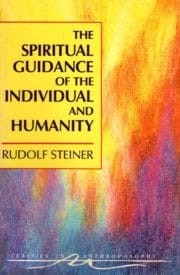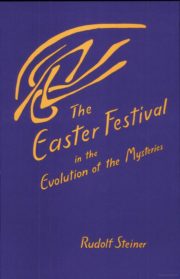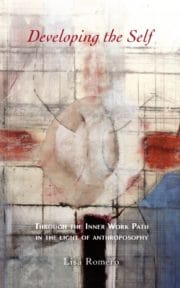Published in 1909 (CW 10)
Steiner’s foundational guide to the spiritual path. Knowledge of the Higher Worlds and Its Attainment is a manual for attaining suprasensory knowledge of the invisible and opens new perspectives on one’s essential purpose in life.
In 1904, Rudolf Steiner first made this account of the Western esoteric path of initiation public. With great precision, he carefully leads us from the cultivation of the fundamental soul attitudes of reverence and inner tranquility to inner development through the stages of preparation, illumination, and initiation. Practical exercises in inner and outer observation and moral development are given. By patiently and persistently following these, new organs of soul and spirit begin to form that reveal the contours of the higher worlds hitherto concealed from us.
“The methods by which a student is prepared for the reception of higher knowledge are minutely prescribed. The direction he is to take is traced with unfading, everlasting letters in the worlds of the spirit where the initiates guard the higher secrets. In ancient times, anterior to our history, the temples of the spirit were also outwardly visible; today, because our life has become so unspiritual, they are not to be found in the world visible to external sight; yet they are present spiritually everywhere, and all who seek may find them.”
About the Author
Rudolf Steiner (1861–1925) was born in the small village of Kraljevec, Austro-Hungarian Empire (now in Croatia), where he grew up (see right). As a young man, he lived in Weimar and Berlin, where he became a well-published scientific, literary, and philosophical scholar, known especially for his work with Goethe’s scientific writings. At the beginning of the twentieth century, he began to develop his early philosophical principles into an approach to systematic research into psychological and spiritual phenomena. Formally beginning his spiritual teaching career under the auspices of the Theosophical Society, Steiner came to use the term Anthroposophy (and spiritual science) for his philosophy, spiritual research, and findings. The influence of Steiner’s multifaceted genius has led to innovative and holistic approaches in medicine, various therapies, philosophy, religious renewal, Waldorf education, education for special needs, threefold economics, biodynamic agriculture, Goethean science, architecture, and the arts of drama, speech, and eurythmy. In 1924, Rudolf Steiner founded the General Anthroposophical Society, which today has branches throughout the world. He died in Dornach, Switzerland.










